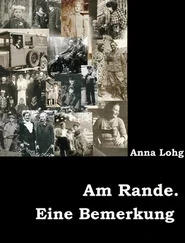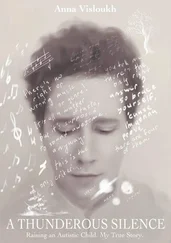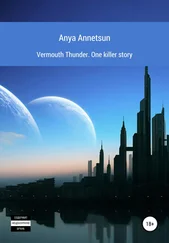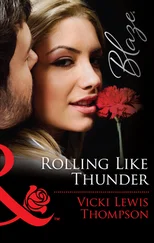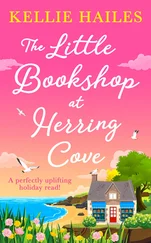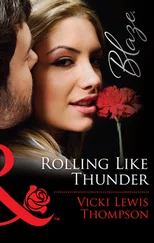As I worked, I imagined Anna and those rocks. I gave names to her rocks. Colonialism. Imperialism. Individualism. Unfettered pursuit of wealth. Spiritual void. Disconnection from the land. The Enlightenment. Serfdom. The Napoleonic Wars. Globalization. I let Anna kick at the rocks and, when she was ready, turn them over—or at least peek underneath.
Anna’s rocks had an immediate effect on the Makahs, Quileutes, and Hoh River people who took her and the other Russians into their homes for a year and a half. That effect ripples out and reaches across the decades, touching us even today. History still characterizes the Russians’ experience using the terms “captivity” and “enslavement.” However, even a cursory glance suggests this choice of words is flawed, and that using them only serves to keep the rocks firmly in place.
In seeking a respectful way of writing Indigenous characters, I approached the Makahs, Quileutes, and Hoh River people first through their tribal councils. Through various means, and not always through the councils, I received help that allowed me to glimpse history, language, and culture through an Indigenous lens. I hope this view is reflected in the narrative. But I know this information does not qualify me to speak on behalf of any Indigenous people. This is a work of fiction, and I have endeavoured to represent the Indigenous characters with as much integrity as I am able, and always from Anna’s point of view with all of her assumptions and cultural baggage.
The path I took was far from straightforward, and my experience is not a road map. I certainly learned more about the Sviatoi Nikolai incident. But I also learned:
• Indigenous people are constantly asked for review, input, and opinion on agendas that are set by outsiders (like me).
• No one person should be put in a position in which she has to speak for an entire community.
• Asking for permission in a colonial context puts a burden on the Indigenous person you’re asking.
• I had to consider that the people I was asking might have more pressing things to do with their limited time.
• Some questions might be painful to answer.
• Some questions where the answers are not known might be equally painful.
I let these lessons inform my approach and tried to remember to go gently. White settlers must no longer allow Indigenous peoples and communities to carry the burden of fighting against harmful colonial practices alone. The path we must share is necessary, urgent, and inevitable, but how we’re going to walk it has yet to be determined. Writing this book has helped me on my own path to decolonization, and for that I am grateful.
I’m deeply indebted to Kenneth N. Owens and Alton S. Donnelly for their book, The Wreck of the Sv. Nikolai , which contains the original accounts of Russian fur trader Timofei Osipovich Tarakanov and Quileute elder Ben Hobucket.
I’m also indebted to the Olympic Peninsula Intertribal Cultural Advisory Committee and Jacilee Wray, editor of Native Peoples of the Olympic Peninsula ; Charlotte Cote, author of Spirits of Our Whaling Ancestors ; Joshua Reid, author of The Sea is My Country: The Maritime World of the Makahs ; Hilary Stewart, who annotated and illustrated an edition of The Adventures and Sufferings of John R. Jewitt: Captive of Maquinna ; Erna Gunther, author of Ethnobotany of Western Washington: The Knowledge and Use of Indigenous Plants by Native Americans ; Ruth Kirk, author of Ozette: Excavating a Makah Whaling Village ; and Linda Ivanits, author of Russian Folk Belief .
The Makah Cultural and Research Center in Neah Bay, otherwise known as the Makah Museum, contains many valuable treasures that show some of what life was like for the Makahs before contact with the Europeans. I enjoyed every minute I spent there and encourage others to visit this gorgeous and eye-opening facility. Thanks to Janine Ledford, the centre’s executive director, and to the Makah Language Program team for patiently and thoroughly assisting with both language and culture.  eko· !
eko· !  eko· !
eko· !
Gracious thanks to the Quileute Tribal Council who responded positively to my project. Through tribal publicist Jackie Jacobs, I was blessed to spend many hours with Jay Powell and Vickie Jensen with whom the Quileute elders have entrusted much of their language and cultural teachings. I’m grateful for the extensive reference materials they provided, the translations, advice, and their willingness to discuss their work and their lives.
Warm thanks to Hoh elder Viola Riebe for sharing her memories of growing up in the Hoh River area and offering sage advice that informed the passages in this book that are set among the Chalats, now known as the Hoh or the Hoh River people.
I’m grateful for all the time I spent in La Push and Neah Bay. These were quiet visits, sometimes with my son, sometimes alone, when I experienced the warm hospitality of the community during Makah Days and Quileute Days and was invited to share salmon, watch games, listen to music, see the dancers, and thrill to some of the best fireworks displays I’ve seen in my life. In winter, I trekked the trails to Cape Flattery, to Tsoo-Yess Beach, to Rialto, First and Second Beach, and to the site of the Sviatoi Nikolai Memorial, completed during the writing of this book, to get a sense of what Anna might have seen and felt in the days after the shipwreck.
In Sitka, Alaska, I would like to thank Hayley Chambers, then-curator of the Sitka Historical Society and Museum, and Jackie Hamburg of the Sheldon Jackson Museum.
I’d like to thank the Maritime Museum of British Columbia for giving me my first hands-on experience of a sea otter pelt. I’d searched high and low only to unexpectedly discover several hanging on the wall in the old museum in Bastion Square in Victoria, BC.
My team of early readers graciously ploughed through my first draft, and their suggestions improved the text in many ways. Thank you, Susan Gee, Rita Parikh, and Meg Walker, for your courage and wisdom.
Taryn Boyd, publisher at Brindle & Glass, has been behind this project for much longer than anyone could imagine. She also critiqued an early draft and over coffee we spent many hours discussing not only the novel and my struggles, but also cultural appropriation, truth and reconciliation, the too-often overlooked work of Indigenous novelists in Canada (two thumbs up for Ruby Slipperjack), and our own family histories. Our discussions gave extra dimensions to the text, and I thank her for encouraging me to go deeper.
Thanks to Claire Mulligan, my extraordinary editor, who helped steer this novel in a direction that’s true—in so many senses of the word.
It’s been a joy to work with Tori Elliott, Colin Parks, Renée Layberry, and the rest of the team at Brindle & Glass. Warm thanks to Tree Abraham for the creative genius that generated the book’s cover and Kate Kennedy for her sharp eyes.
The Canada Council for the Arts and the BC Arts Council both generously provided funding during the writing of this project. This funding allowed me to travel to Neah Bay, La Push, and Seattle, Washington, Sitka, Alaska, and Vancouver, BC. Moreover, it gave me the time and space to be able to research and write.
Thank you to D. M. Thomas for his kind permission to quote the lines from “You Will Hear Thunder” that appear in the epigraph. That poem is published in his collected translations of the poetry of Anna Akhmatova, titled You Will Hear Thunder .
Thank you also to Kerry Tymchuk of the Oregon Historical Society for kind permission to quote or paraphrase certain passages from The Wreck of the Sv. Nikolai , edited and with an introduction by Kenneth N. Owens, translated by Alton S. Donnelly. These brief passages appear on pages vii, 32, 49, 58-60, 154-155, and 219-221 in the text. Deep thanks to Sally Owens who, under particularly difficult circumstances, facilitated this permission.
Читать дальше
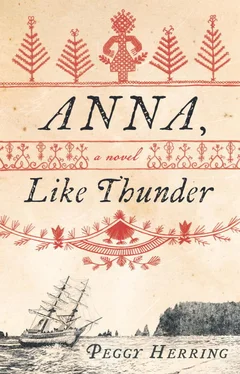
 eko· !
eko· ! 
